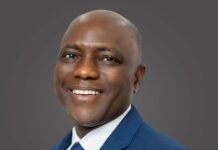LEADERSHIP – LEADING THE CHANGE” BEING THE THEME OF KEYNOTE SPEECH DELIVERED AT THE NIGERIAN AIR FORCE OFFICERS MESS HONORARY MEMBERS FORUM 2023 ANNUAL LECTURE ON FRIDAY 15TH DECEMBER 202
The honorary members forum of the Nigerian Air Force officers mess have mobilized quite some reliable human resources to get me here.
They have also been unsparing in their choice of theme, which is “Leadership- Leading the change.”
They have emphasised in the letter signed by Dr. Goke T. Akinrogunde and Shina Badaru, that what they consider “important” is that the lecture “derives from life experiences while touching on the theories on leadership…”
Of course, we know all the theories of leadership. So many books have been written about the subject; but one still wonders why there are not yet enough leaders.
Why is the world looking desperately for leaders and not followers?
As one author famously titled his book “Where have all the leaders gone?” (Lee Iacocca)
Truth is that leadership is hard. It demands example. It demands courage, character, vision, the ability to think, say and above all to do.
It is unsparing and has been for a long time.
Today, the microscope for examining leadership has a bigger magnification with social media and information liberalisation.
Leadership is, an act, like live broadcast; with little margin for error. Unlike movies there is no space for edits and retakes.
These are some of the things that make leadership lonely and sometimes confounding.
As far as life experiences go, there are enough to look at in recent times.
The impasse in Ondo state stuck out like a sore thumb. Until an act of leadership by the Governor to transfer power spared everybody’s blushes. Before that, people behaved as if there were no rules when there was a constitution.
We have amended the constitution so what is left to amend except ourselves?
Is this a matter that required Presidential intervention when some people were calling for the President to intervene.
Does the Constitution assign a role to the President in this matter?
Are those inviting the President to act in Ondo and in Rivers State not aware that the President has no constitutional role in these matters?
Are they not also those who argue that the Federal Government and by extension the President are too powerful and encroaching the powers of State Governments?
Is this a case of passing the buck when tough leadership calls are requested to be made?
This is why one author titled his own book “Leadership on the line”(Ronald A. Heifetz); because even when what needs to be done is patently obvious, it is still a task to find men and women willing to do it.
Happily, in our Ondo case, some blue blood Ondo indigenes have stood up to be counted (but they are in an obvious minority) even in the pursuit of law and constitutionality before the Governor’s letter restored calm and we want for leadership in Rivers State to do the needful.
Which takes me to another aspect of leadership about where people stand in easy and difficult times.
Inherent in this is courage and character as part of the theories of leadership. But as we have come to find out, courage does not mean the lack of fear; rather it is the resolve, conviction and dignity to pursue the cause in spite of fear.
That resolve comes from many things, not the least of which is the nobility of the cause, it’s just and lawful nature and often times, its publicly beneficent nature as opposed to self-serving purpose.
We have seen this kind of resolve in some areas of our public lives that we will do well to reflect upon.
Some of them that come to mind include the decision to stop providing foreign exchange at official CBN rate for the import of food items like rice.
The other one is the decision to remove the subsidy on petroleum products.
These decisions pass muster because it is hard to make the argument that they serve the self-interest of the maker.
On the contrary they serve a public benefit purpose in the long run even if that requires proper explanation and communication to those impacted adversely by the change of circumstances.
A first look at the decision relating to food items like rice will show that this was an area of economic competitive advantage that we had ceded to other nations, to our own detriment.
So for almost five decades, other economies have prospered because we refused to venture. To say that they fought back is an understatement because old habits die hard. Some of them with whom I spoke were unpretentious about their intent to cripple the Nigerian economy if that decision was not rescinded in 2015.
I think the question that was not asked and the communication that was needed were the impact of a lack of decision on our foreign reserves in the face of crashing crude oil prices at the time.
This kind of communication would have been helpful to show the beneficial nature of this decision because as crude oil prices crashed, so did our dollar receipts diminish, and with it our ability to fund payment for imported rice.
With regard to the petroleum subsidy removal, it is still necessary to continue conversations about the benefits, and to define for Nigerians what harm was avoided by its removal.
One thing that was clear to me was that its continued prevention was the clear road to national insolvency.
As they would say in another country, it is like diving headlong into a propeller.
Leadership communication certainly helps to manage public understanding of leadership choices.
But the truth is that communication tools and skills have also changed and that is what leaders must learn.
For example, while in the past Chief Awolowo had a monopoly of the Rediffusion, Tribune newspaper and later WNTV; and subsequent Nigerian governments had control of NTA and Radio Nigeria, today the privately owned TVs, radios and online publications have outnumbered what the government owns or controls.
A new lesson that today’s leader must learn is how to communicate in this world of information overload and how to get the truth across in this age of fake news.
It is impossible to complete a conversation about leadership without having a conversation about teams after all the leader does not lead himself but a team of people.
How does the leader select? Who are the type of people the leader picks?
Leaders who are serious about leading change need to constitute teams to help them achieve their goals.
Do they pick people as good as themselves or better than themselves, or do they pick people worse than themselves? This brings to mind a book titled “Team of Rivals.” (Doris Kearns Goodwin)
Of course, the nature of the team and how they are led determines to some degree whether the legacy endures or evaporates.
The leader who leads by fear rather than by persuasion must harbour no doubt about what the legacy will look like when time is up.
You will not require glasses to find examples in our history books, about the legacy of leaders who traded in fear.
In picking members of my team, I personally interviewed every person I nominated as Commissioner or Special Adviser, but that does not mean that I did not make mistakes.
Indeed, mistakes are part of the process of learning and they are useful to the extent that we learn from them and never repeat the same mistake.
Therefore the fear of making mistakes must not hinder decision making otherwise, the call of leadership would have been abdicated.
How then can the leader make decisions and avoid mistakes or reduce them to the barest minimum?
It seems to me that some other virtues of leadership such as listening and questioning provide some guidance.
As I have canvassed earlier, communication is vital, but the corollary to that is to ask what is being communicated?
Listening is a virtue that informs, for after all, you can only speak about what you already know, and it is by listening that you learn new things.
Listening enables leadership to get a better picture of the situation before intervening by action and communication.
Of course, related to listening is questioning. A vital task of leadership lies in three letters – WHY. Perhaps this explains the title of another book “Start with Why: How Great Leaders Inspire Everyone to Take Action” (Simon Sinek)
Leaders must seek knowledge about matters over which they exercise power and dominion. This helps to provide information, which the power of listening helps to maximise.
In real life, my team and I, undertook communications training periodically when I served as Governor and as Minister.
We employed survey companies to conduct surveys and polls and furnish us with results and data about issues. In 2007, we conducted a survey about what the people wanted in each Local Government and the result formed the basis of our first budget for 2008 and subsequent years.
Over the years we conducted household surveys to inform us about what was going on inside families in Lagos and what we needed to do to make things better.
Most recently, while trying to develop a national tolling policy, we conducted a nationwide willingness to pay survey.
Very importantly, leading change requires ownership.
This may sound surprising, but I am able to share with you, experience that shows that not all people who end up in leadership roles are able to separate the title from the job.
It is those who succeed in doing so who own the responsibility that comes with doing the job.
This problem impacts the leader as it does members of the team.
In adverse cases you often see team members waiting for directives because they do not see themselves as leaders. Perhaps this is why there is a book titled “Surrounded by idiots.” (Thomas Erikson)
Although focused on communication problems, it is relevant to question the kind of support and personnel that assist leaders in the discharge of their responsibilities.
How many are in for the show and how many are there to add value?
Where the team and the leader own the job, they must then define their purpose. What is the change they seek to effect, so that their actions can be coordinated toward a mutually agreed objective – in real life some have described this as visioning. That is why there is a book called “From Third World to First World.” (Lee Kwan Yew)
Ladies and Gentlemen, I have been involved at national and sub national levels in seeking to affect change for the better for our people. While the work is not finished, I am able to say that some progress has been made.
Some things have changed for the better and others remain a work in progress.
Without seeking to be self-adulating I know that those travelling this festive period between Abuja and Makurdi, Lagos to Ibadan, and across the Second Niger bridge and Loko-Oweto bridge will have a better story to tell than in December of 2022 because things have changed for the better.
It was a privilege to have been somehow involved in all these along with some great team members.
Thank you for listening.
Babatunde Raji Fashola, SAN
Friday 15th December 2023






